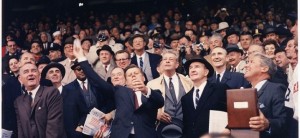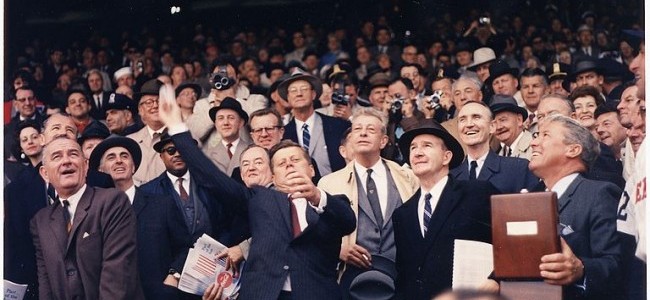
Today is the 50th anniversary of the assassination of President John F. Kennedy. I was four years old on November 22, 1963 when Lee Harvey Oswald shot his rifle and killed the President. The events of that day are one of my earliest memories.
I recall watching our Magnavox black and white television that afternoon with my Mom. She was ironing and watching a soap opera when Walter Cronkite came on to announce the shooting of the President. I didn’t know who Cronkite was at the time and I doubt I even knew who the President was before the event. I vaguely remember my Mom’s grief and all the grief everyone around us felt. It lasted for days and on into Thanksgiving.
It was my first introduction to death and its impact. I didn’t know such things could happen in the world. All the adults around me were good people and the fact that an adult could go out and kill another—our President— was quite a revelation to a four year old. It stuck with me as I got older. That day marked the loss of innocence for me as it did for so many of my generation.
A writer really doesn’t stop to consider what influenced him to write something. Like anyone else, writers are products of their own personal history. Usually, it’s our subconscious working and we wonder in the end what might have caused us to write something. I can’t help but think today that I might have been influenced in some fashion by the assassination of President Kennedy in writing Saving Babe Ruth.
On one level, Saving Babe Ruth is about a man and a rifle of sorts and his desire to protect his town’s baseball league from those who would destroy it. There’s is so much more to the novel than this aspect. Yet I find it interesting that this character is intent on using a gun to defend the innocence of kids. I wonder now if this idea came from my own subconscious experience in dealing with President Kennedy’s assassination.
Over the past few years, President Kennedy’s assassination was never on my mind while I was writing the novel. I haven’t given the tragedy a thought for as long as I can remember. I didn’t start thinking about its influence on my writing until I started to write this article. But I can’t help but think today about its possible impact.
The year before his death, President Kennedy lamented that more Americans went to symphonies than went to baseball games. But he thought “that both baseball and the country will endure.” Time has marched on. Baseball and the country have endured, and so has the memory of President John F. Kennedy and the events of this day fifty years ago.

